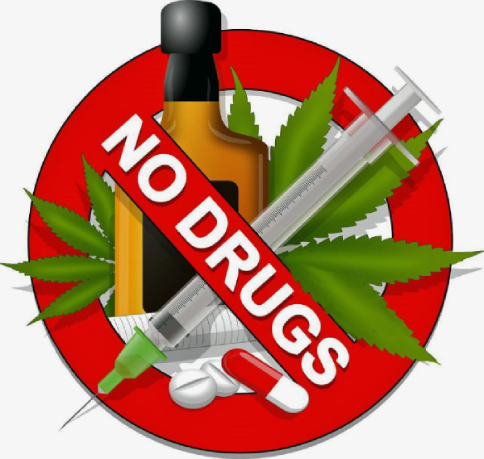



There are millions of Professional Truck Drivers on America’s roads and its clear trucking is absolutely critical for both the national and world economy at large. Truck driving is no easy task as Professional Truck Drivers face daily challenges such as fatigue, isolation, long hours driving, poor diets, lack of exercise, being away from their loved ones, and the list goes on. Annually more and more Professional Truck Drivers seem to turn to substance abuse as a way of dealing with the many stresses and challenges associated with their profession, posing great danger to themselves and other motorists they share the roads with.
DOT and Company Regulations

In addition to complying with Department of Transportation (DOT) regulations and company policies, commercial driver’s license (CDL) holders are subject to drug testing as a condition of their employment. Many decades ago The Federal Motor Carrier Safety Administration made it illegal for those who have been issued a CDL from operating a commercial motor vehicle while under the influence of a controlled substance or even having certain levels of such substances detectable in their body. Professional Truck Drivers are subject to random drug screenings and other related testings at any given time while employed or self-employed, and must strictly adhere to such a request immediately when called to do so.
Increase in Drug Use Among Professional Truck Drivers

In a study done in recent years, many Professional Truck Drivers were tested for illegal substances. Out of the estimated 5.4 million truckers on the road, even the small number that was tested still represents a large number of drivers. For example, the percentage of Professional Truck Drivers who failed the drug test due to cannabis alone in that study was 0.81%. This may seem like a small number, but that number equals 44,388 drivers on the road who were under the influence or had a controlled substance in their body which can impair their ability to do their job safely.
Cannabis is by far the most common substance Professional Truck Drivers have been found to have in their system. Officials from the DOT have stated that the fact many states have legalized cannabis has made it more easily accessible and available for anyone over 21 years old. Although considered safe by these states who have legalized it, cannabis can still have effects similar to that of alcohol while driving, such as lowering a driver’s concentration, lowering response time, and causing drowsiness behind the wheel.
Next on the list is amphetamines, also known as “speed.” In a recent study, 0.65% of Professional Truck Drivers tested failed a drug screening due to amphetamine in their system, equaling about 35,421 drivers.
Cocaine is the third drug that topped the list, with 14,939 Professional Truck Drivers failing their drug tests due to its use.
Amphetamines and cocaine are both classified as stimulants, so it is clear to see why they are commonly abused in this profession. Although they may give some energy and decrease the effects of fatigue and drowsiness allowing Professional Truck Drivers to maintain working long shifts and long-haul assignments, they are also known to change perceptions and alter reaction times, and may even cause hallucinations.
Other substances such as heroin, opiates, or phencyclidine (PCP) did not make the top 3, but still enough drivers failed their drug tests for these substances to warrant concern. With an opioid crisis ongoing throughout the U.S. the DOT began testing for opioid abuse just recently in 2018.
It goes without saying that the little sleep Professional Truck Drivers may already receive, alongside the use and abuse of these substances, can lead to many problems such as losing focus, being inattentive to traffic around them, not paying attention to the road conditions, a slower response time, a misjudgment of distances, reduced coordination, distorted vision or hearing, decreased information processing, and an overall increase in poor decision making that could cause serious personal injuries to themselves and others, property damages, and loss of lives.
Statement From the FMCSA

The U.S. Department of Transportation’s Federal Motor Carrier Safety Administration (FMCSA) was quoted in Reuters Health stating: “Safety is our number one priority and FMCSA has strict requirements on pre-employment screening and random and post-accident drug and alcohol testing…. FMCSA’s own Drug and Alcohol Testing Surveys of U.S. drivers regularly show the positive rates for random drug and alcohol tests for the drivers we regulate is very low, around 1 percent.
“We acknowledge the pressure and daily demands on commercial motor vehicle drivers, but also believe the vast majority of Professional Truck Drivers are dedicated professionals who would never jeopardize their careers, their safety and the safety of other travelers by using substances or medications that would adversely impact their ability to operate safely on the nation’s highways.”
Consequences of Drug Use

Professional Truck Drivers are tested randomly, and before their employment begins with their company. After the event of an accident they are also tested, or if reasonable suspicion arises that they might be under the influence of a controlled substance. Those Professional Truck Drivers who test positive for these substances are usually immediately banned from commercial driving duties, and must attend drug rehabilitation treatment before even being considered for rehire by their company or any other company.
If a motor carrier company does not follow the rules set forth by the Federal Motor Carrier Safety Administration (FMCSA), they can suffer severe penalties, and those companies that gain a reputation of having too many cases for accidents caused by drivers under the influence end up paying heavy consequences in the long term. Professional Truck Drivers themselves can lose their CDL and end up paying heavy fines, as well as risking termination or criminal prosecution. Companies that do not follow the strict regulations of the FMCSA and employ drivers under the influence, risk being deregistered altogether if they do not quickly change the way they monitor and deal with their employees.
Prevention, Diagnosis, and Treatment Options for Addiction Problems

Once addicted, there is no quick fix, and for this reason Professional Truck Drivers often turn to rehabilitation services as an effective means of getting back on track with their lives and career. Rehabilitation helps people suffering from drug addictions by providing them with a safe and supportive environment that allows them to recover from their addictions without distraction. Professional Truck Drivers who have turned to rehabilitation services will receive treatment for their addiction in the form of detoxification and counseling.
Professional Truck Drivers may want to consider attending an outpatient rehab program. Inpatient programs require participants to stay at the facility while they are being treated for their addiction, whereas outpatient programs allow participants to check in and receive treatment at local clinics during regular business hours.
People who enter treatment programs should expect to stay for an average of seven months, though this can vary depending on the severity of their addiction and other factors. During this time, participants will work with counselors to address the drug use which led them into rehab in the first place, while learning to prevent a relapse. These professionals are well trained to help addicts work through their problems so that they feel confident enough to return to their personal and professional lives while kicking the habit one day at a time.
Bottom Line
If you suspect a fellow Professional Truck Driver is using drugs, it’s important to act immediately. Talk with him/her directly about their behavior and encourage them to seek help through rehabilitation services, or a professional who can offer him/her the appropriate help. Stepping in may prevent a Professional Trucking Driver from destroying his/her life or someone else’s via driving under the influence etc. We all want ourselves, our families, Professional Truck Drivers, and the roads we share with them safe, so do your part, and if you see something, say something. Think safety first.